Description
ABSTRACT
Digital Technology in Legal Practice: Nigeria in Focus
A. O. Okesola*
The Nigerian judiciary has yet to fully adopt information communication technology (“ICT”), but it largely relies on manual processes in justice delivery. The non–digital, traditional mode of judicial proceedings causes inordinate delays and other challenges that militate against the efficient dispensation of justice. This paper aims to examine the reformation of the Nigerian justice system in light of the implementation of digital technology, particularly concerning court sittings in Nigeria. The paper also investigates the legal framework for using ICT in the Nigerian justice system. The method adopted is both analytical and critical. The paper finds partial or non-application of electronics and modern information and communication technologies in our justice system. A lack of comprehensive legal framework exists for applying ICT in judicial proceedings. The paper concludes by recommending, among others, that the National Information Technology Development Agency (NITDA) should create a policy direction specifically on digital technology implementation by working hand in hand with the National Judicial Institute (NJI) to deploy information technology (IT) for efficient social justice delivery in Nigeria.
Keywords: Information Communication Technology, National Information Technology Development Agency (NITDA), judicial proceedings.
INTRODUCTION
The goal of the judicial system in Nigeria is to dispense justice. All traditional – text-based or digital-inclined procedures must be carried out to enable the judiciary to achieve a just outcome in all cases. However, the non–digital, traditional mode of judicial proceedings often causes inordinate delays and other challenges that militate against the efficient dispensation of justice. It is important to note that the advancements have not only converted the world into a global village but have also resulted in unprecedented speed in information dissemination and other social interactions. Despite the immense potential of ICT, the Nigerian judiciary has not fully adopted ICT in the administration of justice.
A Nigerian publication succinctly summarised the importance of ICT-efficient administration of justice in the following words: Every federal and state judiciary must integrate ICT to create better efficiencies in time use and reduce costs, labour, and other professional waste in the judicial system. Why do our judges use nineteenth-century infrastructure and expect to meet the challenges of the 21st century?1
*PhD (Ife), Lecturer Ajayi Crowther University, Nigeria.
- H Otteh, ‘For Nigeria’s Tomorrow our Judiciary needs a complete makeover’ (Vanguard Newspaper, 1
October 2010) accessed 21 August 2022.

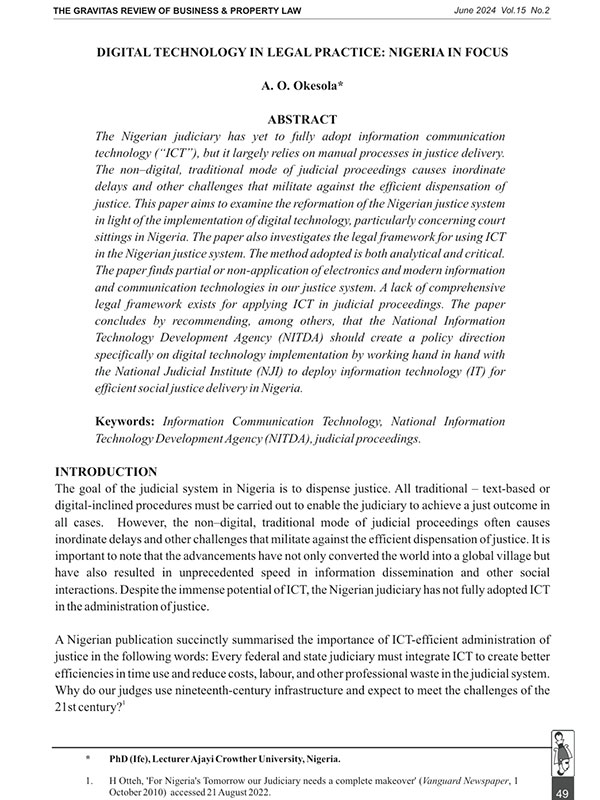
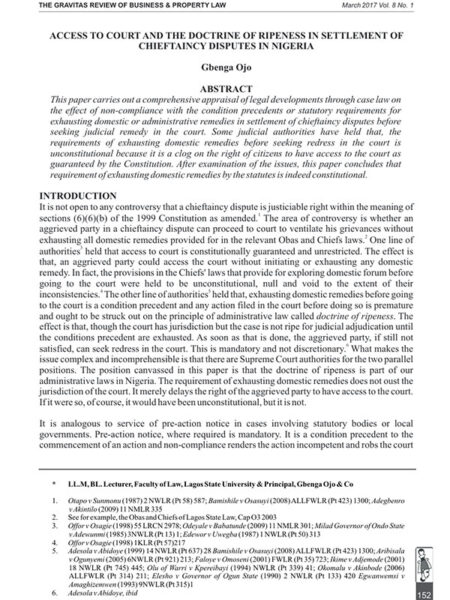
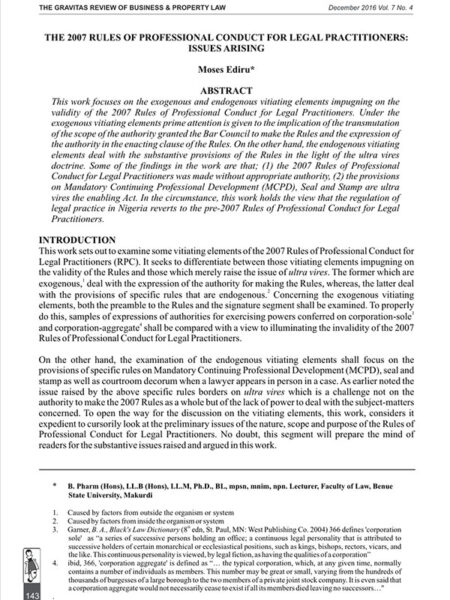
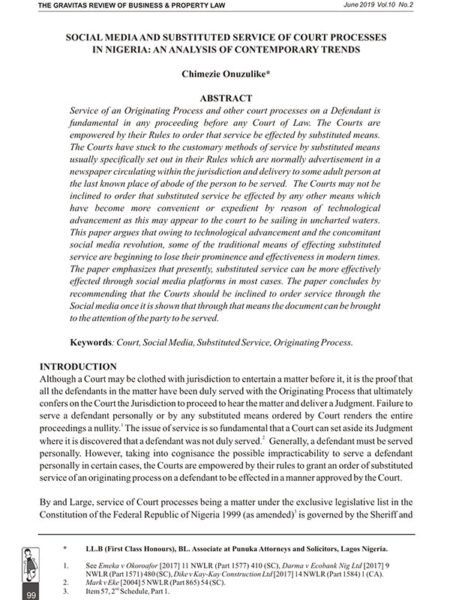
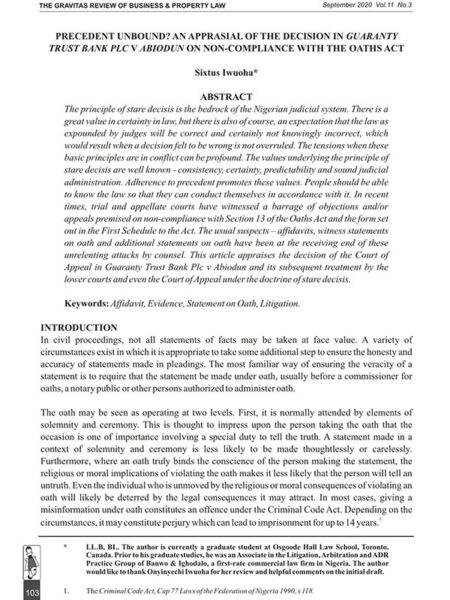


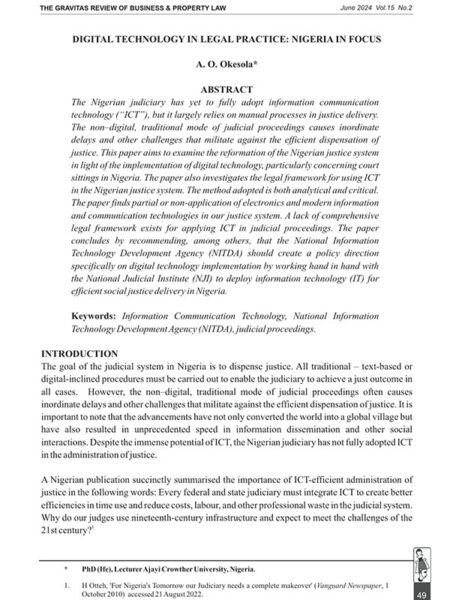
Reviews
There are no reviews yet.